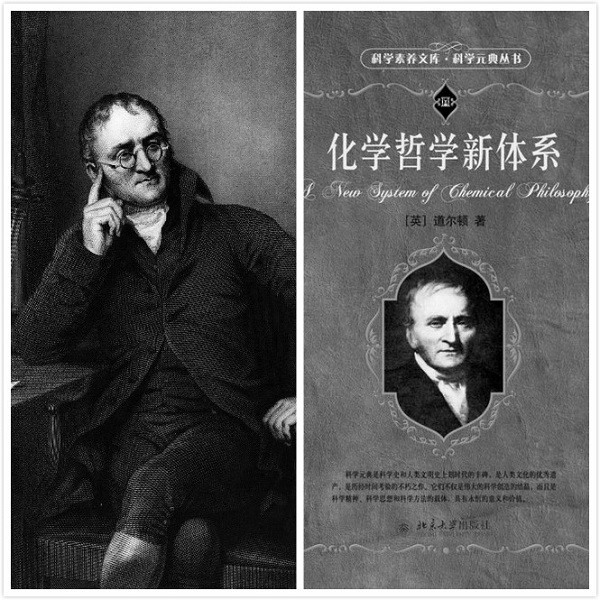(单词翻译:单击)
The work made Dalton famous—albeit in a low-key, English Quaker sort of way. In 1826, the French chemist P .J. Pelletier traveled to Manchester to meet the atomic hero. Pelletier expected to find him attached to some grand institution, so he was astounded to discover him teaching elementary arithmetic to boys in a small school on a back street. According to the scientific historian E. J. Holmyard, a confused Pelletier, upon beholding the great man, stammered:
这项成就使道尔顿闻名遐迩——即使是以一种英国贵格会式的低调。1826年,法国化学家P.J.佩尔蒂埃来到曼彻斯特,想会一会这位原子英雄。佩尔蒂埃以为他属于哪个大机构,因此,当他发现道尔顿在小巷里的一所小学教孩子们基础算术的时候,不由得大吃一惊。据科学史家E.J.霍姆亚德说,佩尔蒂埃一见到这位大人物顿时不知所措,结结巴巴地说:
“Est-ce que j’ai l’honneur de m’addresser à Monsieur Dalton?” for he could hardly believe his eyes that this was the chemist of European fame, teaching a boy his first four rules. “Yes,” said the matter-of-fact Quaker. “Wilt thou sit down whilst I put this lad right about his arithmetic?”
“请问,这位是道尔顿先生吗?”因为他无法相信自己的眼睛,这位欧洲赫赫有名的化学家竟然在教小孩子加减乘除。“没错儿,”那位贵格会教徒干巴巴地说,“请坐,让我先教会孩子这道算术题。”
Although Dalton tried to avoid all honors, he was elected to the Royal Society against his wishes, showered with medals, and given a handsome government pension. When he died in 1844, forty thousand people viewed the coffin, and the funeral cortege stretched for two miles. His entry in the Dictionary of National Biography is one of the longest, rivaled in length only by those of Darwin and Lyell among nineteenth-century men of science.
虽然道尔顿想要远离一切荣誉,但他仍违心地当选为皇家学会会员,捧回一大堆奖章,获得一笔可观的政府退休金。他1844年去世的时候,40000人出来瞻仰他的棺木,送葬队伍长达3公里多。他在《英国人名词典》中的条目是字数最多的之一,在19世纪的科学界人士当中,论长度只有达尔文和莱尔能与之相比。


